 Episode 5 opens with a real tear jerker scene showing our once tough-guy king crying like a baby while lovingly caressing Jane’s effigy. (the music score is beautiful.) Henry makes a promise to lie with Jane again—a promise he would later keep when he was buried next to her at in St George's Chapel in Windsor Castle.
Episode 5 opens with a real tear jerker scene showing our once tough-guy king crying like a baby while lovingly caressing Jane’s effigy. (the music score is beautiful.) Henry makes a promise to lie with Jane again—a promise he would later keep when he was buried next to her at in St George's Chapel in Windsor Castle.The next scene is seemingly thrown in to show the tension between evangelists and Catholic conservatives. On November 13, 1536, Robert Packington, a mercer and rumored evangelist was ironically on his way to mass when he was shot dead.* Packington was a man of sizable wealth and influence in Parliament. Unfortunately, his choice of friends (Cromwell may have been one) had also earned him many enemies in conservative sects. To this day, no one knows who shot Packington. John Foxe in his martyrologies of 1559 claimed John Strokesley, bishop of London, paid a priest to shoot Packington. But in later writings by Foxe, he changed his murder suspect to John Incent, the Dean of St. Paul’s Cathedral. Although we will never know the murderer, some sort of clerical conspiracy is possible.
Meanwhile, Cromwell is on a mission to find Henry a new bride and his first choice is one of the nubile French royalty. But Henry cannot be bothered with marriage plans because he is too busy grieving over his dead wife. In Hollywood timing it looks like Henry grieved an awfully long time. In reality, Henry grieved for about a month before Chapuys was noticing that Henry was having a jolly good time enjoying his masques and planning his next marriage. (Of course, Chapuys comments must always be taken with the usual ill humor he sometimes showed toward Henry.)

Wil Somers came into Henry’s service in 1525 and became by far his most beloved fool and companion. With his monkey hanging over his stooped shoulder, his colorful attire and his caustic wit, Somers kept everyone in the court entertained. The job of the fool was basically to make the king laugh, but also to always speak the uncensored truth. At least that is how it worked in theory, but Henry wasn’t always a good sport to playful jesting. One time, Somers had to leave court when he made the comment about Anne Boleyn, “Anne is a ribald, the child is a bastard!” Henry didn’t think that one was so funny.
 But if Somers can’t cheer Henry up then perhaps spending some of that hard-earned church money will do the trick. Henry begins plans for Nonsuch Palace (built right where a church once stood). Nonsuch Palace was named its ridiculous name because Henry was in one of those “my castle is bigger than yours” phases in his life where he was trying to rival Francis I’s Chateau de Chambord. Thus, Henry believed no such palace would match the splendor and grandiosity of Nonsuch Palace. Unfortunately, Henry might be a bit disappointed to learn that the Chateau de Chambord is still arguably one of the most beautiful castles in the world and Nonsuch no longer exists. **
But if Somers can’t cheer Henry up then perhaps spending some of that hard-earned church money will do the trick. Henry begins plans for Nonsuch Palace (built right where a church once stood). Nonsuch Palace was named its ridiculous name because Henry was in one of those “my castle is bigger than yours” phases in his life where he was trying to rival Francis I’s Chateau de Chambord. Thus, Henry believed no such palace would match the splendor and grandiosity of Nonsuch Palace. Unfortunately, Henry might be a bit disappointed to learn that the Chateau de Chambord is still arguably one of the most beautiful castles in the world and Nonsuch no longer exists. **
Back in the royal nursery, Lady Bryan must supervise Edward’s household and that includes overseeing the cleanliness of his chambers. Henry decreed Edward’s chambers were to be scrubbed down daily so that not a single germ came near the royal heir. You would think all this overzealous attention to cleanliness would have actually weakened his immune system, but by all accounts Edward was a very healthy and robust child.
Meanwhile, Henry enacts the Act of Six Articles. The Tudors breaks down each of the six articles and everything that is listed is true including Cranmer now having to hide his wife. (priests could not marry)
Back in pirate land, Sir Francis Bryan is off searching for Reginald Pole in Italy. (Henry actually appointed several assassins to hunt Pole down. …none of them caught him) The violence depicted on the Tudors might make you wonder if the show is over-dramatizing Sir Francis’ thug appeal, but Francis didn’t get the nickname, ‘the Vicar of Hell’ for nothing. He certainly had no scruples about bringing down his cousin, Anne Boleyn, even though she had been the one to secure his position in Henry’s court. But don’t worry…he will get what is coming to him. (Maybe next episode?)
Although Reginald has escaped his assassins, his actions are not earning him any fan mail. His brother, Lord Montagu and his mother, Margaret Salisbury renounce him and his treasonous actions in a letter. All true. But as the Tudor implies, Montagu and the Countess of Salisbury were forced to write condemning letters to save their heads. In truth, they shared Reginald’s views, but not his bravery/foolishness to go against the king. Would letters really save Reginald’s family? Find out in the next episode…
*Murder by gun was uncommon at this time and Packington may have been the first case in London killed in such a manner.
**Charles II’s mistress, Barbara Castlemaine demolished the castle and used the building materials to pay off her gambling debts.

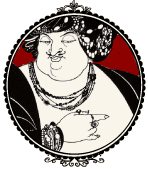

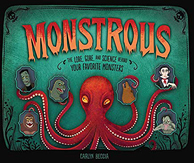
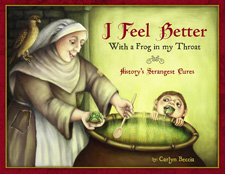
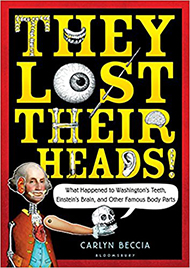


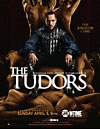

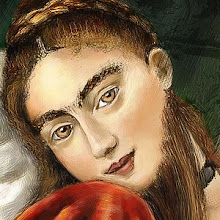

8 comments:
I like your reviews. But I would think that considering your well-placed appreciation of JRM's acting you would spell his name correctly. It's Meyers; not Myers.
These posts are fascinating! I'd never heard of Nonsuch Palace.
I wonder - did 16th century England really link cleanliness to health? Weren't those the days of a bath a year, maybe, even for royalty? I thought the scrubbing the walls daily an anachronism - you didn't?
I wish they weren't planning to end the series with Henry's death. I realize that the Mary/Elizabeth story has been done to death, but I'm finding myself drawn into the relationship between the two somewhat discarded heirs. It's portrayed here in a very loving manner. Perhaps we don't know enough; do you have any information? I'm really enjoying these recaps. The series plays so fast and loose with some aspects of history, but adheres so closely to others.
Is anyone else getting somewhat of an "I, Claudius" vibe from this episode? Something about Wil Somers at the end on the throne cackling just made me think of the final few years of the reign of Claudius.
Also interesting to note is the direct lifting of the "stab the pillows" bit from "The Fellowship of the Ring" and the way the Acts, cited and dramatized with crosscuts to debauchery, echoes the now-stock structure of the end of "The Godfather", when the sacred is intercut with the profane. This was a really fine (and disturbing) episode, and the parts that are derivative play like in-jokes.
Fran – Sorry for the misspelling of Meyers name. My appreciation of Meyers acting in this episode was genuine. I was just extremely rushed to get this post done before I flew out on a book promotion trip.
Susan – yes, Nonsuch palace is fascinating. Too bad we can’t appreciate it today.
Kasandra – It is true that many poor people bathed once a year but Henry was fastidious about cleanliness. He had a bath at Hampton Palace with actual heated water that he used frequently. It really was not into the latter part of the century that people started to associate disease with water entering the pours of the skin. So yes, he was adamant about Edward’s apartments staying clean.
If you are interested, I did a post briefly covering the history of bathing that you can find here:
http://blog.raucousroyals.com/2008_09_01_archive.html
Jill – I agree that Elizabeth and Mary’s story deserves some attention. I did hear that there is a movie coming out soon staring Scarlett Johansson as Mary and will focus on her relationship with Elizabeth. Let’s hope it will not be another "The Other Boleyn Girl".
This episode was by far my favorite and did remind me of I, Claudius with a twist of Godfatherish irreverence. At this point, Henry has developed the key ingredients for a Macchiavellian potentate – he has used both fraud and force but is now even deceiving himself. Unfortunately, the next episode dumps the Fool and I feel we lose Henry’s ruthless side. More to come...
I've just discovered this series and I can't get enough. Thanks to Verizon Fios, I was able watch season 2 on demand (after watching the first 2 episodes of season 3)--does anyone know if the series is available on DVD yet? I want to see season 1! I also wish they weren't stopping with Henry's death; we've seen lots of Elizabeth's story, but not really Mary's--they didn't call her Bloody Mary for nothing. There's got to be plenty of interesting storytelling there.
Both season 1 and 2 are available on DVD in the UK - my wonderful hubby gave me both for a Xmas pressie!!
I have only in recent months discovered the Tudors and have been watching the entire series on demand. with every episode I have paused the show at points of interest, grabbed my iPhone and attempted to look up if what I was seeing was fact or fiction. I am so amazed by the facts! I am so grateful that with season 3 I stumbled across this website. I have found it so helpful. like cliff notes! thank you thank you for educating me!
Post a Comment